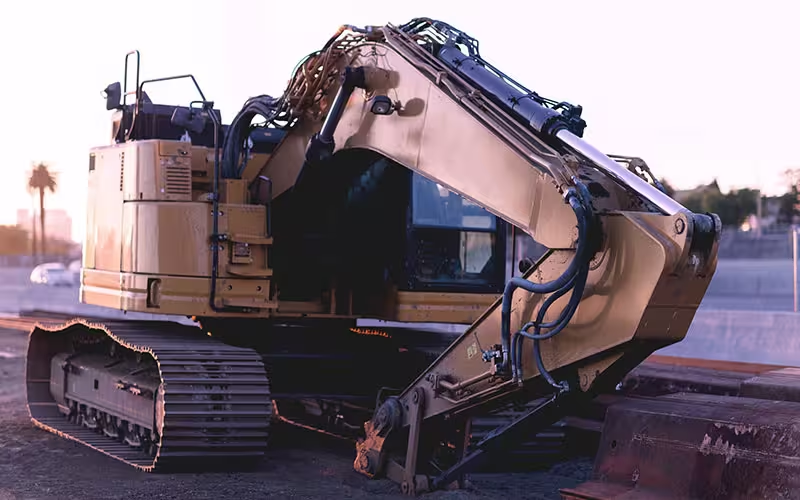For Industrial Construction Management Tulsa, see our main page here or call us at 918-695-9461.
Understanding the Role of Industrial Construction Management Tulsa
Industrial construction management plays a critical role in the success of large-scale commercial and manufacturing projects. It involves planning, coordinating, and executing construction processes specifically designed for industrial facilities like factories, refineries, and distribution centers.
Unlike residential or standard commercial projects, industrial construction requires a more comprehensive understanding of logistics, engineering, safety compliance, and operational functionality. It’s about building spaces that meet demanding production needs while ensuring longevity, efficiency, and compliance with all regulatory standards.
Key Responsibilities in Industrial Construction Management Tulsa
A successful industrial construction management team oversees every aspect of the build from concept to completion. This includes:
- Planning project schedules and budgets
- Procurement of materials and subcontractors
- Ensuring compliance with OSHA and EPA regulations
- Coordinating with engineers and architects
- Quality assurance and risk mitigation
For example, when building a water treatment facility in Tulsa, the project manager must consider environmental standards, durable materials, and systems integration. This type of complex planning requires deep expertise and hands-on experience specific to industrial design and functionality.
Why Location Matters for Industrial Projects in Tulsa
Tulsa’s location makes it a hub for manufacturing, aerospace, and energy-related industries. As a result, the need for high-quality Industrial Construction Management Tulsa services continues to grow. The city offers access to major highways, railroads, and a skilled labor force, which supports the demands of industrial projects.
For instance, building a parts manufacturing plant near Tulsa International Airport allows companies to streamline logistics and supply chains. Therefore, the location can significantly impact operational costs and timeline efficiency.
Integrating Technology in Industrial Construction Management Tulsa
Construction technology is transforming the way managers approach large-scale industrial builds. Tools like Building Information Modeling (BIM), drones, and AI-driven project management software streamline operations and boost accuracy. With BIM, teams can visualize potential clashes between plumbing and electrical systems before construction begins.
Similarly, real-time data from IoT sensors on-site allows managers to assess progress, check material usage, and coordinate labor with minimal delay. As a result, industrial construction in Tulsa is becoming more precise, safe, and cost-effective every year.
Choosing the Right Team for Industrial Construction Management Tulsa
Not all construction companies are equipped to handle industrial-scale needs. It’s essential to choose a team with experience in similar projects, strong vendor relationships, and a full understanding of safety and regulatory requirements.
When selecting a partner, consider the company’s project portfolio. Do they have experience with manufacturing plants, warehouses, or processing facilities? Do they work closely with structural engineers and process designers? For example, a contractor with experience in renewable energy plants will better handle the specifics of solar panel installation and energy-efficient equipment integration.
Safety and Compliance: Cornerstones of Industrial Construction
One of the biggest differentiators in industrial versus commercial construction is the attention to safety and compliance. Industrial facilities often entail hazardous materials, pressurized systems, and high-voltage equipment. Consequently, the construction management approach must prioritize:
- OSHA guidelines and inspections
- Environmental controls and waste management
- Emergency planning and response procedures
For instance, while building a chemical storage unit in Tulsa, a miscalculation in temperature control systems could lead to regulatory fines or environmental damage. Therefore, safety oversight needs to be embedded at every stage of the construction timeline.
Cost Management Strategies in Industrial Projects
Industrial projects often deal with millions in investment. Therefore, cost control is not just about budget tracking—it’s about strategic sourcing and smart planning. Effective construction management teams address this through:
- Value engineering
- Timeline compression and phasing
- Vendor negotiation and long-term partnerships
Consider a scenario where a Tulsa-based manufacturing facility switches to pre-engineered steel components. This choice can reduce material costs and accelerate permits, offering both savings and agility. Strategic decisions like this require deep industry knowledge and financial insight.
Comparing Industrial and Commercial Construction
Though similar in some ways, industrial and commercial construction differ significantly in purpose and complexity. Commercial projects focus on service-oriented spaces like retail stores and office buildings. Industrial construction, on the other hand, serves production and storage needs.
While commercial construction might prioritize aesthetics and customer flow, industrial design focuses on function, load-bearing capacity, and workflow efficiency. In other words, the stakes are higher and the details more specialized. Consequently, the management process for an industrial project demands expertise in mechanical systems, site logistics, and regulatory codes.
Trends Transforming Industrial Construction Management Tulsa
Tulsa is adapting as new trends shape the future of industrial construction. Some current trends include:
- Sustainable building practices and green certifications
- Smart manufacturing facility integration
- Increased modular and prefabricated construction
For instance, more companies in the Tulsa area are building LEED-certified warehouses with solar-ready roofing and energy-efficient HVAC systems. Moreover, modular systems are increasingly used to reduce construction time and material waste, helping developers meet aggressive timelines while supporting environmental goals.
Frequently Asked Questions
What industries benefit most from Industrial Construction Management Tulsa?
Industries such as aerospace, energy, chemical processing, and distribution centers benefit the most. These sectors require complex systems, safety oversight, and space customization.
How long do industrial construction projects typically take?
Timelines vary based on scope. Simple warehouses may take a few months, while refineries or manufacturing facilities can take a year or more. Planning often starts six months to a year in advance.
Is Tulsa a good location for industrial development?
Absolutely. With access to interstates, rail corridors, and affordable land, Tulsa supports logistics and production sectors effectively. The growing skill base in the region adds further advantage.
What should I look for in an industrial construction manager?
Look for experience with similar facilities, a solid safety track record, financial transparency, and references. Their ability to coordinate with engineers and navigate compliance is also key.
Can tech reduce delays in industrial construction?
Yes, using tools like project scheduling software, mobile task management, and BIM significantly reduces delays. Real-time adjustments save both time and money throughout the project.
Final Thoughts on Industrial Construction Management Tulsa
Taking on an industrial project requires more than just bricks and mortar. It needs a well-rounded approach, specialized knowledge, and strong leadership. Industrial Construction Management Tulsa combines all of this to deliver safe, efficient, and functional spaces that support vital industries in Oklahoma.
Whether you’re building a food processing facility or a multi-bay shipping hub, the right project management can be the difference between delays and success. Considering the rising demand for tailored industrial spaces, now is a great time to plan with long-term efficiency and value in mind.
Follow us on Facebook here.


